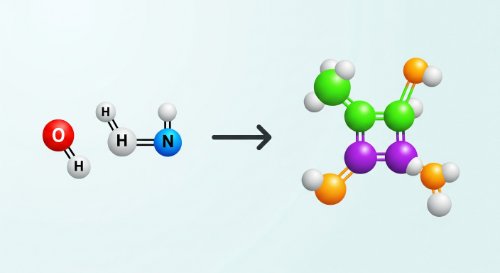Summary - Conclusion | Introduction to Chemistry (Undergraduate Foundation)
SPONSORED Get Personalized Tutoring NowStruggling with a tough concept or looking to advance your skills? Our expert tutors offer one-to-one guidance tailored to your unique needs.
Get instant support, clear explanations, and practical strategies to master even the most challenging subjects. With flexible scheduling and customized learning plans, success is just a session away.
Book your personalized tutoring today and start achieving your academic goals!
Get Personalized Tutoring NowStruggling with a tough concept or looking to advance your skills? Our expert tutors offer one-to-one guidance tailored to your unique needs.
Get instant support, clear explanations, and practical strategies to master even the most challenging subjects. With flexible scheduling and customized learning plans, success is just a session away.
Book your personalized tutoring today and start achieving your academic goals!
Struggling with a tough concept or looking to advance your skills? Our expert tutors offer one-to-one guidance tailored to your unique needs. Get instant support, clear explanations, and practical strategies to master even the most challenging subjects. With flexible scheduling and customized learning plans, success is just a session away. Book your personalized tutoring today and start achieving your academic goals!
 Introduction to Chemistry (Undergraduate Foundation)Chemistry is the science of matter. This course provides a rigorous introduction to its fundamental principles, moving from the definition of matter and its states to the atomic and molecular structures that govern its behaviour. We will classify matter into elements, compounds, and mixtures, and establish the critical distinction between physical and chemical changes.
A command of chemistry is essential for any quantitative science. The principles covered here are foundational to medicine, engineering, environmental science, and materials development. Understanding how matter is structured and how it transforms is the basis for creating new materials, developing pharmaceuticals, and managing industrial chemical processes safely and efficiently.
Upon completion, you will possess a clear conceptual framework for chemistry. You will be able to classify different types of matter, distinguish between physical and chemical changes, and define elements, compounds, and mixtures. You will also be able to identify the fundamental roles of atoms, molecules, and ions in chemical reactions.
This course is designed for first-year university students beginning their studies in any scientific or engineering discipline. It serves as a mandatory prerequisite for further study in chemistry, chemical engineering, biology, and medicine. It is also suitable for anyone requiring a concise and formal review of foundational chemical concepts.
Introduction to Chemistry (Undergraduate Foundation)Chemistry is the science of matter. This course provides a rigorous introduction to its fundamental principles, moving from the definition of matter and its states to the atomic and molecular structures that govern its behaviour. We will classify matter into elements, compounds, and mixtures, and establish the critical distinction between physical and chemical changes.
A command of chemistry is essential for any quantitative science. The principles covered here are foundational to medicine, engineering, environmental science, and materials development. Understanding how matter is structured and how it transforms is the basis for creating new materials, developing pharmaceuticals, and managing industrial chemical processes safely and efficiently.
Upon completion, you will possess a clear conceptual framework for chemistry. You will be able to classify different types of matter, distinguish between physical and chemical changes, and define elements, compounds, and mixtures. You will also be able to identify the fundamental roles of atoms, molecules, and ions in chemical reactions.
This course is designed for first-year university students beginning their studies in any scientific or engineering discipline. It serves as a mandatory prerequisite for further study in chemistry, chemical engineering, biology, and medicine. It is also suitable for anyone requiring a concise and formal review of foundational chemical concepts.
Chemistry is the science of matter. This course provides a rigorous introduction to its fundamental principles, moving from the definition of matter and its states to the atomic and molecular structures that govern its behaviour. We will classify matter into elements, compounds, and mixtures, and establish the critical distinction between physical and chemical changes. A command of chemistry is essential for any quantitative science. The principles covered here are foundational to medicine, engineering, environmental science, and materials development. Understanding how matter is structured and how it transforms is the basis for creating new materials, developing pharmaceuticals, and managing industrial chemical processes safely and efficiently. Upon completion, you will possess a clear conceptual framework for chemistry. You will be able to classify different types of matter, distinguish between physical and chemical changes, and define elements, compounds, and mixtures. You will also be able to identify the fundamental roles of atoms, molecules, and ions in chemical reactions. This course is designed for first-year university students beginning their studies in any scientific or engineering discipline. It serves as a mandatory prerequisite for further study in chemistry, chemical engineering, biology, and medicine. It is also suitable for anyone requiring a concise and formal review of foundational chemical concepts.
![[NUC Core] CHM 101: General Chemistry I](https://media.unidrills.com/avatars/learningTrack/bZpzeLvaF8T3mv5MFnpf.JPEG) [NUC Core] CHM 101: General Chemistry IThis learning track delivers the complete NUC CCMAS curriculum for General Chemistry I. It is a comprehensive programme designed to build a robust, university-level foundation in modern chemistry. The track systematically covers all essential topics, from atomic theory, chemical bonding, and the states of matter, to the quantitative principles of stoichiometry, equilibrium, thermodynamics, and kinetics.
This programme is for first-year undergraduates in science, technology, engineering, and mathematics (STEM) faculties who are required to take CHM 101. It is also essential for any student or professional globally who needs a rigorous and complete foundation in first-year university chemistry for further study or career development.
This track delivers a full skill set in chemical theory and quantitative problem-solving. Graduates will be able to determine molecular structures, calculate reaction quantities, analyse the energetics and rates of reactions, and solve complex equilibrium problems. This programme provides the non-negotiable prerequisite knowledge for all subsequent chemistry courses and for any degree in the physical sciences, engineering, or medicine.
[NUC Core] CHM 101: General Chemistry IThis learning track delivers the complete NUC CCMAS curriculum for General Chemistry I. It is a comprehensive programme designed to build a robust, university-level foundation in modern chemistry. The track systematically covers all essential topics, from atomic theory, chemical bonding, and the states of matter, to the quantitative principles of stoichiometry, equilibrium, thermodynamics, and kinetics.
This programme is for first-year undergraduates in science, technology, engineering, and mathematics (STEM) faculties who are required to take CHM 101. It is also essential for any student or professional globally who needs a rigorous and complete foundation in first-year university chemistry for further study or career development.
This track delivers a full skill set in chemical theory and quantitative problem-solving. Graduates will be able to determine molecular structures, calculate reaction quantities, analyse the energetics and rates of reactions, and solve complex equilibrium problems. This programme provides the non-negotiable prerequisite knowledge for all subsequent chemistry courses and for any degree in the physical sciences, engineering, or medicine.
This learning track delivers the complete NUC CCMAS curriculum for General Chemistry I. It is a comprehensive programme designed to build a robust, university-level foundation in modern chemistry. The track systematically covers all essential topics, from atomic theory, chemical bonding, and the states of matter, to the quantitative principles of stoichiometry, equilibrium, thermodynamics, and kinetics. This programme is for first-year undergraduates in science, technology, engineering, and mathematics (STEM) faculties who are required to take CHM 101. It is also essential for any student or professional globally who needs a rigorous and complete foundation in first-year university chemistry for further study or career development. This track delivers a full skill set in chemical theory and quantitative problem-solving. Graduates will be able to determine molecular structures, calculate reaction quantities, analyse the energetics and rates of reactions, and solve complex equilibrium problems. This programme provides the non-negotiable prerequisite knowledge for all subsequent chemistry courses and for any degree in the physical sciences, engineering, or medicine.